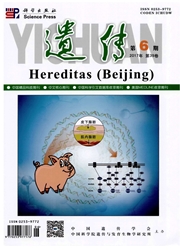

 中文摘要:
中文摘要:
猪作为实验材料,具有由于来源方便、基因序列与人类的相近及其在畜牧业中的重要地位等优势,成为国内外研究的热点,但是猪的胚胎干细胞(Embryonic stem cells,ESC)建系方面的研究进展缓慢。诱导性多能干细胞(induced pluripotent stem cells,iPSC)技术的诞生,开创了体细胞重编程的全新方法。猪iPSC体系的建立将为家畜ESC体系的建立奠定基础,同时也对提高猪转基因克隆的效率,高效育种和保种,乃至生物医学领域均产生深远的影响。文章综述了iPSC技术的主要进展,重点阐述了猪iPSC技术的现状及其在生物医学和畜牧业中的应用前景,以期为从事该领域研究的科研人员提供参考。
 英文摘要:
英文摘要:
Pig has always been the focus of establishing a big ungulate animal ES cell lines because of its convenient source, genetic similarity with humans, and their importance in animal husbandry, but little development is achieved. Induced pluripotent stern cells technology creates a new method of reprogramming somatic cells to pluripotent state. As the pig iPS cells is established and perfected, pig ES cells will be established in the coming years. The pig iPS cells will give a hint on other livestock ES cells. On the other hand, pig iPS cells can be used to improve the efficiency of transgenic cloning pigs to conduct effective breeding and conservation of breeds. It is particularly important that the pig iPS cells can provide new model for human medical research, a new donor cells for human tissue and organ engineering, and have extensive and far-reaching impact on the biomedical field. Here, we briefly review the major progress of iPS cells, and emphasize current state of pig iPS cells and its application prospect in biomedicine and animal husbandry in order to provide a useful reference for researchers working in this area.
 同期刊论文项目
同期刊论文项目
 同项目期刊论文
同项目期刊论文
 Hepatoprotective effect of an immortal human fetal hepatic cell transplantation on CCL4-induced acut
Hepatoprotective effect of an immortal human fetal hepatic cell transplantation on CCL4-induced acut 期刊信息
期刊信息
